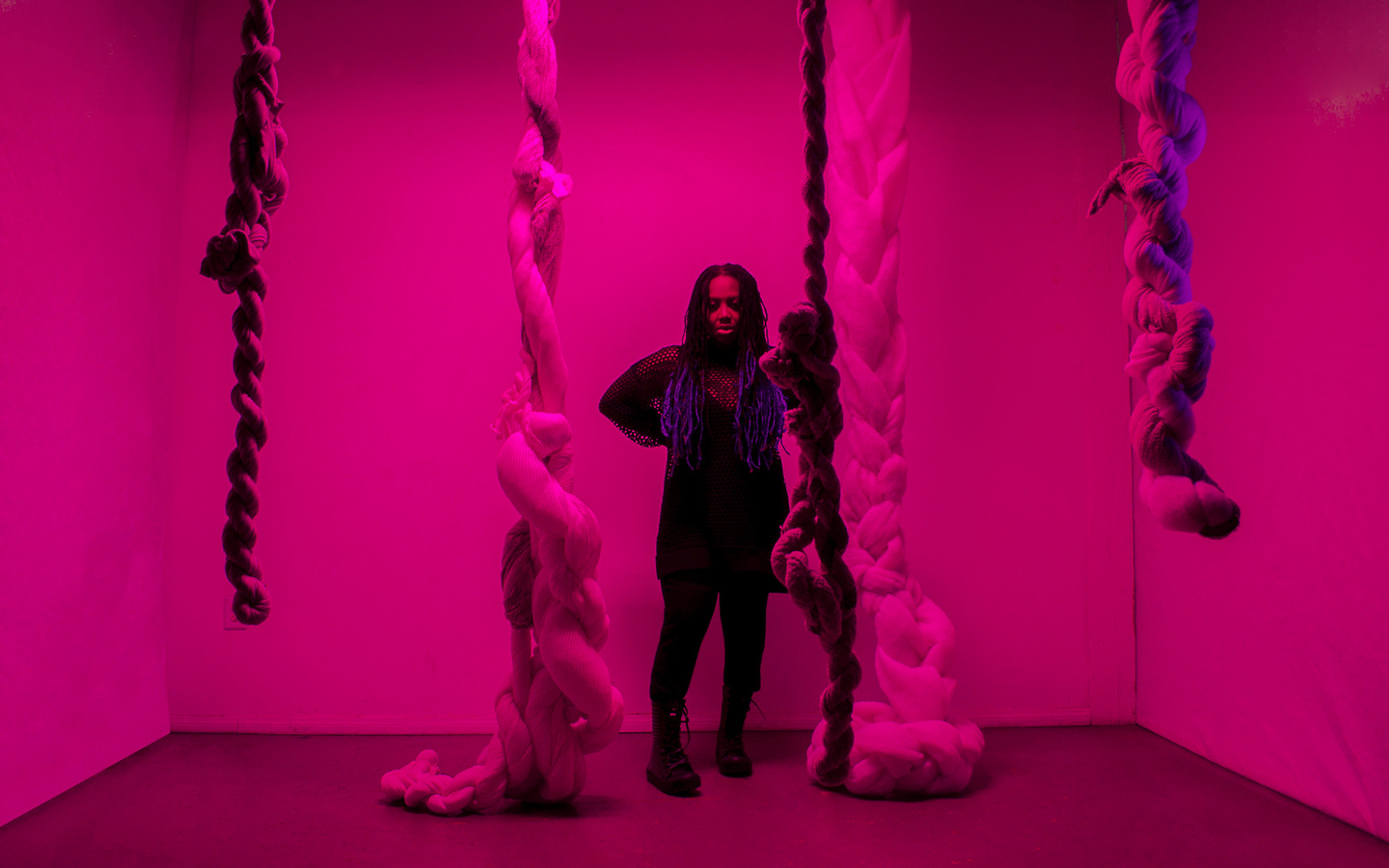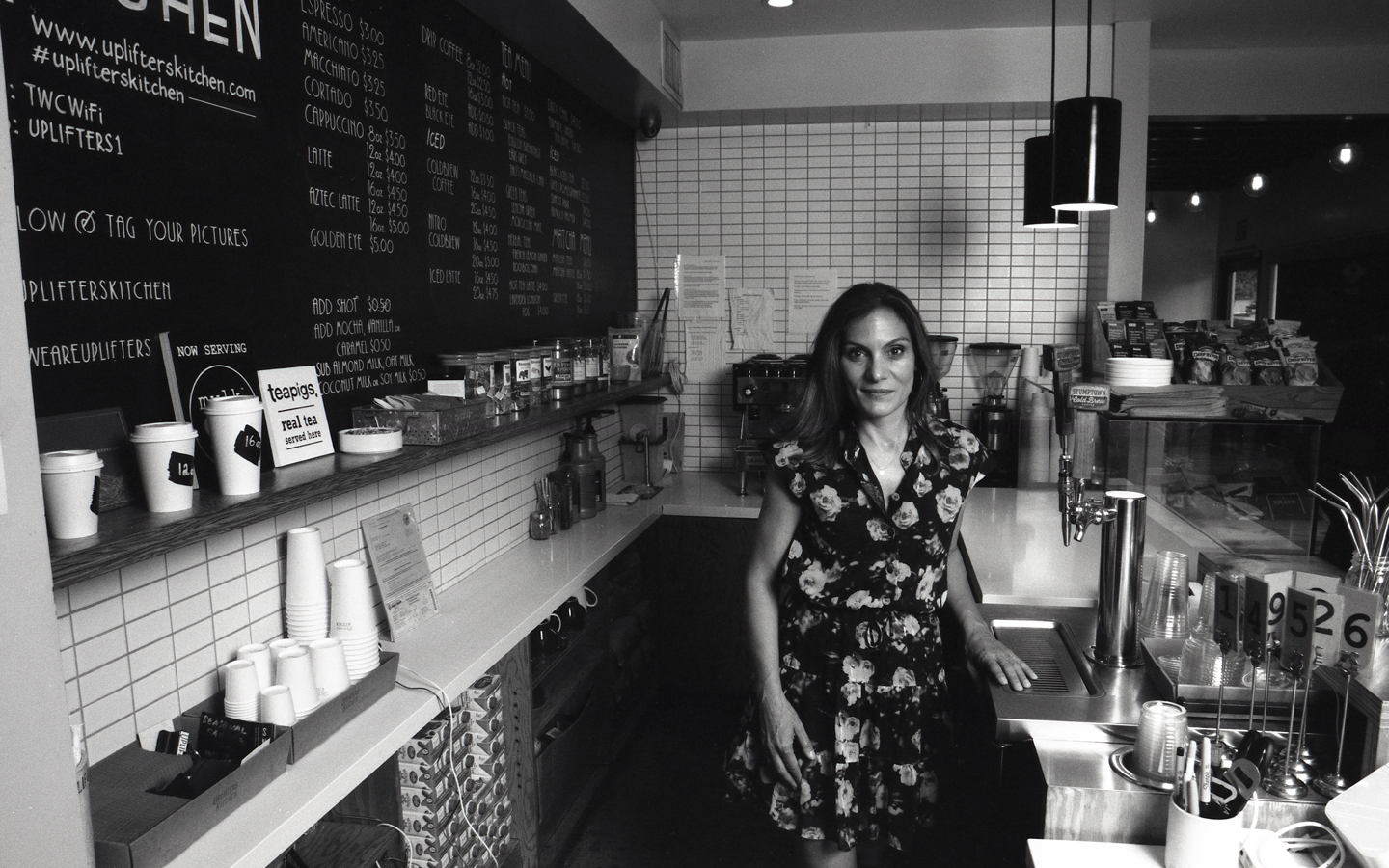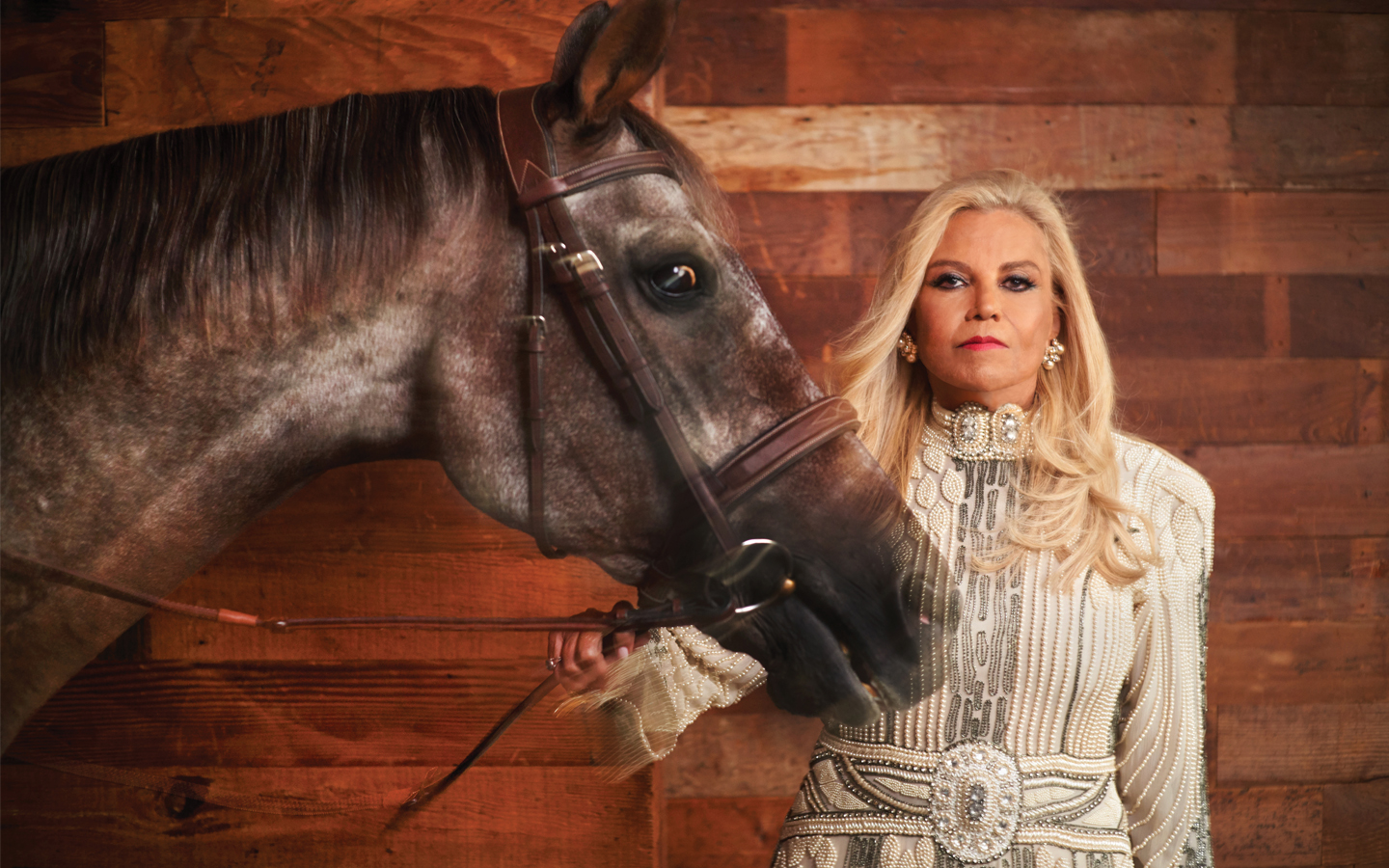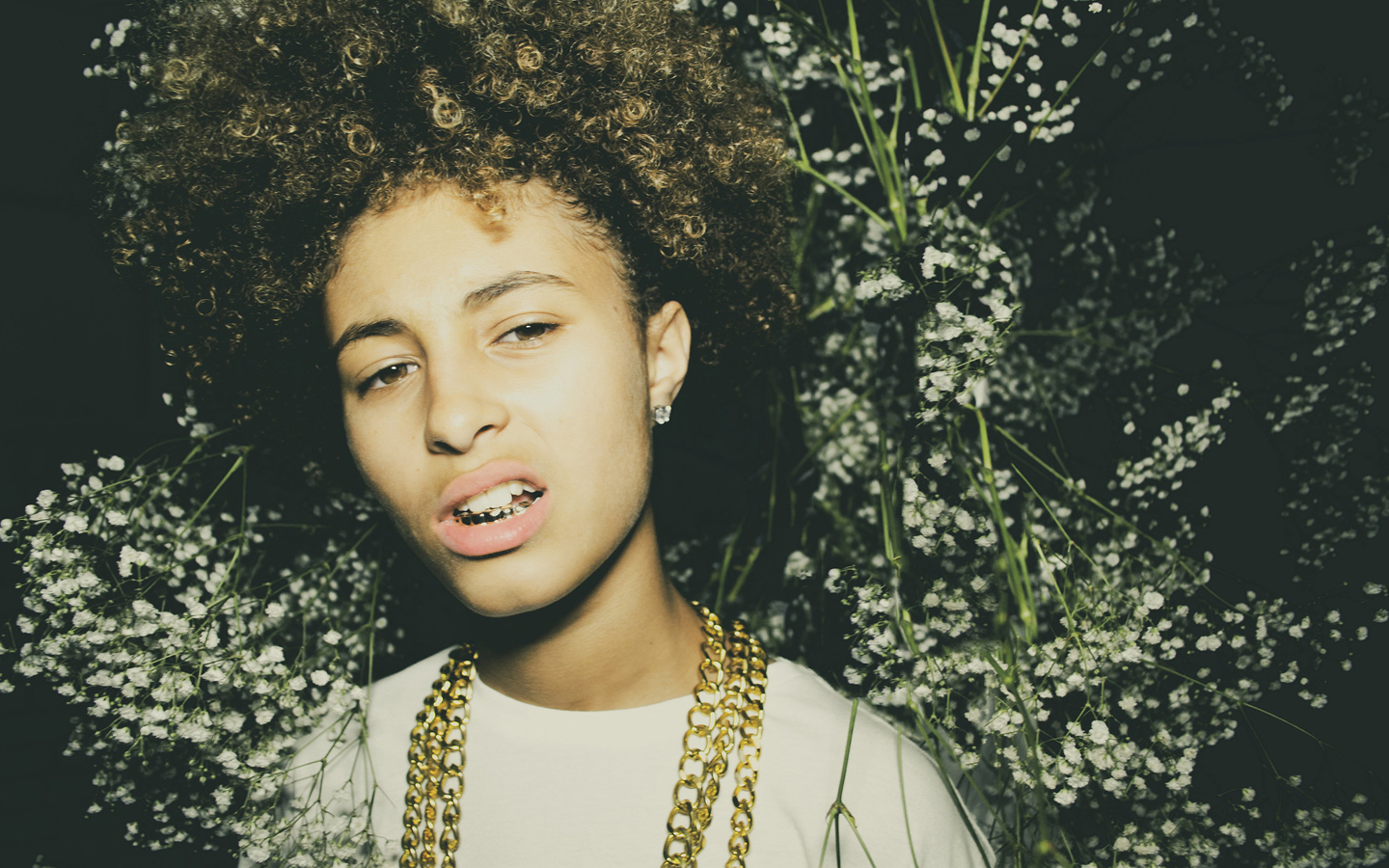
Lalah Hathaway
TEXT RUTH ADKINS ROBINSON
VISUAL FARIDA AMAR
Driving up, dressed in a purple outfit — right down to the color running part-way up her long hair — singer, songwriter, record producer, arranger and pianist, LALAH HATHAWAY is the exemplar of the 21st Century Woman. She exudes style, warmth and a generous nature, a public persona that rarely permits a glimpse of the savvy business woman behind the thousand-watt smile. Yet, the message gets across that she is in charge of her career, her life, and the direction both will take. Her DNA sticks her right in the middle of the soul-stirring ‘70s, but it’s her awareness of everything contemporary that puts her a step ahead of the music business game. Innovative and decisive, nothing is left to chance or speculation in the tools she uses to get to the next step in today’s music world. Social media platforms are her world, gaming is a passion, and spreading the news is an art for her.
She is the “First Daughter of Soul,” the young princess of one of the giants of soul music. Her father is Donny Hathaway, who created a body of work that still generates imitation and acclaim many years after his early death in 1979.
Hathaway observes “People always talk like my father gave birth to me all alone and that’s where my talent comes from. But, no, my mother was right there, too.” Her mother Eulaulah was, and is, a singular talent all on her own, still working with Lalah, going on the road, giving musical and business advice and career counsel. “If you want to know the moment that I decided to be in the music business, there wasn’t one moment; with my parents, there was never any other path for me,” Hathaway says.
“I wasn’t introduced to any instrument,” she says with a smile. “My instrument is my voice, and it introduced itself to me about the time I could recognize sounds.”
The music business has always been “more difficult for women than men,” she opines, but points out that attitudes are “different now” than in the ‘60s when her mother was starting out. There have been so many women who took charge of their musical direction and career, she asserts. It’s more expected now than when her mother was attending college, where she met her future husband.
Her parents were both music students in the Fine Arts Department at Howard University and married in 1967. Her classically trained mother successfully stepped into the role of wife and mother of two daughters. As their DNA promised, both Eulaulah Donyll (Lalah) and Kenya are graduates of the prestigious Berklee College of Music in Boston.
Back when her father was producing records for Curtis Mayfield or playing on Aretha Franklin sessions or on his own, the music business was completely different. Expectations for men and women were different in music and in life, Hathaway says.
In those days, time would drag between when an artist went into the studio, when the finished product got into the hands of the promotion men, on to the radio, into the record stores, and when it finally reached the buying public. Today, that record business doesn’t exist, nor do the tired old ways in which women had to approach a career making music.
Hathaway’s present approach would have been unheard of back in those days and is perhaps even revolutionary today. She had her own website before many people heard the term, did a Facebook and Twitter-style thing before either even existed. She’s made the current state of the business work for her.
Her last musical project was fan-funded; her ardent fans jumped in with money before the recording began, purchasing a wide range of offerings from Hathaway through pledgemusic.com.
Hathaway says, “There were dinners, drinks, birthday phone calls, a chance to be sung to onstage, and many other opportunities. I even tried to sell my Grammy dress, but nobody bought it, and I’m glad because now I get to keep it.”
Those ten-minute birthday calls were especially fun, she says, “because you can really connect with someone in a few minutes like that.”
Overall, her style is to make a video, ask her followers some questions, stir up interest in what she’s doing and sell records, sell out concerts. All promotion aside, she has the chops to deliver.
This beautiful contralto loves being on stage. “The musical conversation between players really is magic. The audience is quick to show how much they appreciate what you are doing. And you can reach inside yourself and deliver an event that everyone can remember.”
According to her Berklee College of Music classmate, Butter Glanville, “Lalah can do things other singers simply cannot do. In fact, she can sing two notes at a time. Go figure that out.”
When recounting session time with Lalah, her drummer — jazz legend Dizzy Gillespie’s nephew — says “She used to smoke Camel cigarettes and would take a puff, blow it out and then sing everything perfectly. She could even do the blends in the booth, turning her head to get the sound that other singers would have to wait for the microphone to be shifted to get. Truth is, she can sing anything, anytime.” Bonus: she no longer smokes, preserving that perfect voice.
The wide range of styles she sings has added to her powerful achievements since her eponymous debut album in 1990. She has accomplished a feat no other female singer can claim — a wall full of successive Grammy wins. She collected her first prize in 2013 for Best R&B Performance for the song “Something,” which was a joint project with artist Snarky Puppy.
The next year, she took home Best Traditional R&B Performance with the Robert Glasper Experiment for the track “Jesus Children,” while in 2015 she won her second Grammy in the Traditional R&B Performance category for her own single remake of her Dad’s anthem, “Little Ghetto Boy.”
The simply titled Lalah Hathaway Live, her first live effort, was awarded at the Grammy ceremonies in 2017. That album mirrors the renowned Donny Hathaway Live. Most of both those albums were recorded at the legendary Troubadour club in Los Angeles.
This effort was part of a dream come true, she says. She emphasizes “You need to have a dream and be ready to change the shape of the dream as your career unfolds.”
Her advice to any young girl wanting to be in music is about not changing at all in regard to a musical dream. “You better be absolutely sure that’s what you want. It’s not enough to just have talent. You have to be able to stick in there no matter what gets thrown at you.”
Part of Hathaway’s own sticking-in-there, in between constant touring and recording, is going beyond her personal goals to help others.
She takes time to support causes close to her: She has mentored children in the music and arts, and she has fought side by side with the Susan B. Komen Foundation for better access and treatment for women of color in winning the breast cancer battle.
What’s in store in the future? “More,” she says. “More music, more recording, more touring, more innovation. Just more.” And with that, she offers a warm smile that lights up her face – the picture of the perfect 21st Century Woman – all business, all heart, and still a daughter of soul.
You may also like
Elisabet Spaulding of Uplifters Kitchen
Elizabet comes from a family of small business owners…The ability to go out and do it, create it,
Suzanne de Passe
Her story has taken on the mantle of myth and legend. It’s been retold in Harvard Business School
Nhandi Craig
By the time she was 9-years-old, she had already made her debut appearance on NBC’s America’s Go




